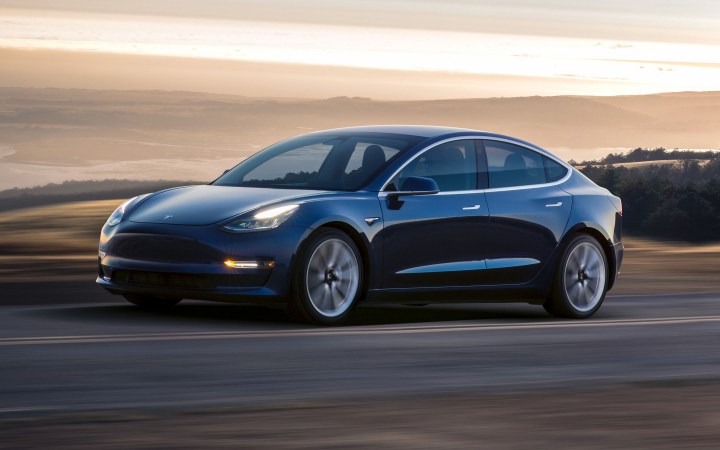
Tesla’s latest baby, the Model 3 EV, recently began its official rollout to the public following a whirlwind of coverage by the media, who have been watching its progress like hawks. And now that the Model 3 is beginning to fall into the hands of the most important determining factor of its success — the customer — the feedback on Model 3 itself is also rolling in.
Is the Tesla Model 3 as shockingly good as hoped for, and does it live up to the hype? Not so much, at least with flying colors. If you’ve been following the Model 3’s news stream, it’s been inundated with constant reports of production issues and complications. For instance, The Verge reported on Model 3 production issues at Tesla’s Gigafactory back in January. To this day, that’s still affecting Tesla’s ability to churn out these new vehicles.
In fact, we recently learned via a report from Bloomberg that Tesla temporarily suspended production of the Model 3 altogether from February 20 to 24. The break in production was predetermined, and was meant to help the company collect itself in preparation for producing an even higher volume of cars moving forward.
“Our Model 3 production plan includes periods of planned downtime in both Fremont and Gigafactory 1,” a Tesla spokesman said in an emailed statement. “These periods are used to improve automation and systematically address bottlenecks in order to increase production rates. This is not unusual and is in fact common in production ramps like this.”
Fast forward to today, now that normal customers — meaning ones not directly affiliated to Tesla in any way — are receiving their Model 3, the feedback on the car itself seems to be mixed. More notably, the press hasn’t had much access to the Model 3 up until now either, despite it being in production since 2017. Thus, engineers around the world who typically get hired by other automakers to document a new car by disassembling it and reverse-engineering them, also haven’t been able to report their findings.
Now that engineers have been able to dissect a Model 3, the feedback is getting worse.
Back in February, a report from German news outlet Süddeutsche Zeitung, written by renowned auto journalist Georg Kacher, revealed that a major German car company supposedly paid around 185,000 euros (or $230,000), about five times the Model 3’s typical asking price to obtain one. With reports from their engineers beginning to surface, CleanTechnica reports that the Germans seem impressed with the Model 3 in a number of ways.
They supposedly love the way everything is “compact, expandable, fully integrated, modular, easily accessible, well protected, low priced, and astonishingly clever,” Kacher wrote. The engineers also reported admiration for its design and its ability to comfort everyone inside, along with enough driving range to suit the needs of most people in daily use. And due to of the potency of electric motors, the Model 3’s acceleration made good impressions.
On the flipside, engineers at an independent “competitive benchmarking” company, Munro & Associates, based in Auburn Hills, Michigan, didn’t have equally as nice things to say in their assessment of the Model 3. Other outlets published Munro & Associates’ remarks, which were all compiled in a YouTube video, with comparisons to build quality from a “1990s Kia” resonating most. Although Kia is doing great now, back in the 1990s, its cars weren’t worth much praise.
In the video, Munro & Associates engineers complain about the Model 3’s inconsistent gaps, shoddy build quality, and mending attempts. The owner of the firm, Sandy Munro, even said that he hasn’t seen stuff like this “since the 1970s.” We could assume he’s referring to the bygone era of the likes of British Leyland, with its reputation for some of the worst build quality automotive history has ever seen.
Even though these are only two accounts, reports are still coming in of unhappy and happy customers, with many even acknowledging these issues as “growing pains.”
Either way, it still seems Tesla has a long road ahead of itself to fix the Model 3’s production woes.
Updated on March 13: Added news that Tesla temporarily paused production of the Model 3 in February.
Editors' Recommendations
- The Tesla Model Y is at its lowest price yet — but should you buy one?
- Tesla faces new rival as a tech giant launches its first EV
- Tesla video shows off Cybertruck’s Basecamp tent attachment
- Tesla introduces ‘congestion fee’ for Supercharger stations
- Tesla says Cybertruck resellers could face harsh penalties


